So happy to welcome Dawn Miklich, guest blogger for this post on parrots. It’s been a long time since I’ve had a parrot but I can so relate to all these questions. Especially the mess, oh the mess. But I will never forget my Moluccan cockatoo chasing the cats off the couch because he wanted me all to himself. What I wouldn’t give for a video of that now to post on YouTube! Dawn’s article gives lots of insights into important facts about parrots.
5 Questions to Ask Yourself Before You Get A Parrot
So you’ve been thinking about getting a parrot.
I totally understand why you want to add one to your family. I share my life with four of them. They are intelligent. Some can carry on a conversation with you. And the things they do that make you laugh are crazy! Often, I’d rather hang around with my birds than people.
But life with parrots isn’t all feathers and glitter.
Like all of us, parrots have their good qualities and their bad qualities. People who understand their needs and are willing to take the good with the bad will have a companion for life. Unfortunately, many people jump into parrothood without being aware of what is involved in living with parrots. The result is that many of these birds develop behavior problems, get rehomed, often multiple times, and, if they are lucky, end up in one of the already filled bird rescues. It’s not a very fair life for a bird.
If you are thinking about getting a parrot, the best thing you can do is learn about what you would be getting into. So before taking a step into parrothood, ask yourself these questions to see if you can handle life with a bird.
Facts About Parrots
1. How much noise can you handle?
They may be little, but they can be loud. Very loud. Parrots make noise. It’s part of who they are. How loud can they get? I can hear my little mini macaw when I am outside and that’s with all the doors and windows closed. Some birds, like my African Greys, make a high pitched beeping noise that some people just can’t tolerate.
Some species are known for being louder than others, but every species can get going and not everyone appreciates it. Family, neighbors and even you may get frustrated at the amount and intensity of the noise. In that frustration, the parrot often gets inadvertently reinforced for its screeching which makes it worse. With some patience, the noise can be kept to a minimum, but there are always going to be moments of noise.
And then we have the noise that most people want when they get a parrot– talking. When you get a parrot, there is no guarantee that they will talk. Sure, some species are known for having a big vocabulary, but this doesn’t mean every one of that species will chat up a storm. African greys are known for their vocabulary, but the most my Roca would say was “hello” and an occasional “up.” There is so much more than their talking ability to love.
2. Can you deal with the mess?
You don’t know how much of a mess can be made until you get a parrot. Food, toy pieces, poop, and feathers have a way of making it from one corner of your house to another. Cleaning becomes a new hobby.
The mess doesn’t always stay at home either. It’s not unusual for a parrot owner to show up at work not aware of the feathers or poop that became part of their wardrobe. Probably not the fashion statement most of us are trying to make.
3. Do you have the budget?
There is more to getting a pet than just the initial costs. With birds you have ongoing costs for food, vet care, toys and various other supplies.
Toys aren’t just for fun. They provide activity that is needed for a parrot’s well-being by providing chewing and foraging opportunities that a parrot misses not being in the wild. They are a must. But there is nothing like spending $25 on a toy only to have it end up a pile of wood chips in an hour to make you clutch your wallet and weep a little. Toys need to be rotated and replaced so they are an ongoing cost. Many of us make our own toys to save some money.
Parrots don’t live by seed alone. In fact, a seed diet can be very detrimental to their health. Variety is what is needed with pellets and fresh food. Not big on making your own meals? That will change with getting a parrot and you have to prepare vegetables, beans, grains, fruits, and nuts for a mix of fresh food.
Parrots require a vet who specializes in avian medicine. Unfortunately, they are few and far between so traveling a few hours to one is not uncommon. My avian vet is almost two hours away. It’s not a bad drive when it’s just a normal routine visit, but that same two hour drive for an emergency is horrendous. Being a more exotic species, their care, testing and medicines can run more than for a dog or cat.
4. Can you handle bad behavior?
When you add a parrot to your life, it’s not going to just blend in with your household. A parrot is going to act like, well, a parrot. It’s going to chew on things you don’t want it to. Your parrot is going to want to go where you don’t want it to go. It’s going to get moody and hormonal. And it’s going to bite. All of these are things that can be managed, but that management means you are going to have to change YOUR behavior. The way we react and handle the problems affects whether the behavior increases or decreases.
5. Do you have the time?
All pets need time and attention and parrots are no exception. If they were in the wild, parrots would have other members of their species to socialize with. In our homes, they have us. Ignoring them will cause behavior and self-destructive problems. You should plan on spending time each day with your bird both one-on-one and just hanging out.
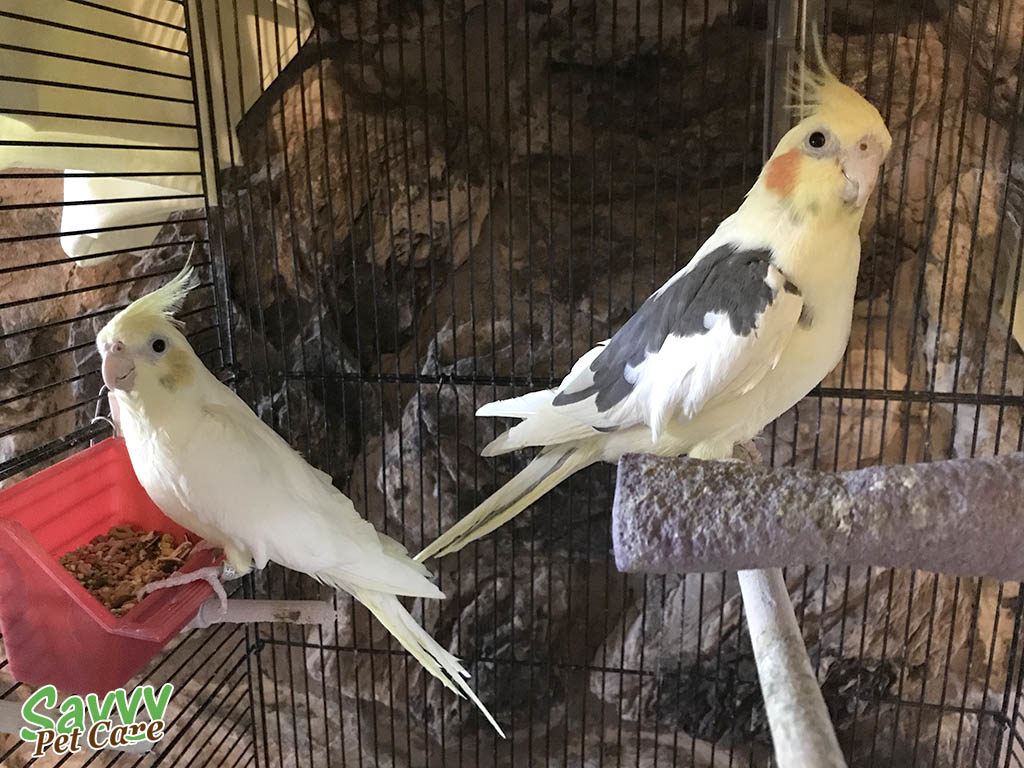
Cockatiels are a member of the cockatoo family. They are the second most popular caged bird next to the parakeet.
Parrots are known for their long life spans which can vary with smaller species living about 15 years and larger species living 70+ years. That sounds great when you compare it to other pets. But that period of time could have a lot of life changes for you. What will you do if you marry? have kids? travel a lot? you move? Will you be committed enough to include your bird in your life with those changes? Will you be committed to making sure your bird is able to adjust to those changes?
A long life span also means there is a good chance your bird may outlive you. What will happen if that is the case? Is there someone who can continue to care for them after you are gone? Will you be able to set up plans so your bird’s care is taken care of?
Now that you’ve taken a look at these facts about parrots and what goes into having one, what do you think? Is it something you can commit to?
If so, don’t run out and get a parrot. Spend some time around people who have parrots and learn about what they experience. Join some Facebook groups relating to parrots and a forum or two (I recommend Avian Avenue). If there is a species you are interested in, join a group related to that species. Nothing can compare to other people’s experience living with a bird.
If, after all that, you still feel a parrot is the pet for you, consider adopting a rescue. Every year people, who don’t understand what is involved in being a parrot parent, surrender their birds to rescues. A parrot rescue gets to know the personalities of the different birds in their care and can match you up with one who will fit your life.
They take time, they take patience and they take our hearts, but for those willing to give those to a parrot, watching them thrive in our homes is worth it.
Pin It and Save for Later
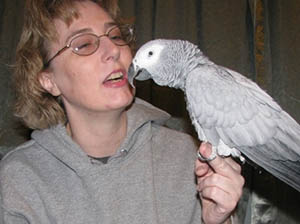 Dawn Miklich shares her life with four feathered family members, Suerto, Eco, Kijivu, and Ruby along with a crew of dogs, cats and rodents. When she isn’t cleaning up after critters or loving on them, you can find her at PetFaves where she digs up cool products for pets and their people. You can also follow on Facebook and Pinterest.
Dawn Miklich shares her life with four feathered family members, Suerto, Eco, Kijivu, and Ruby along with a crew of dogs, cats and rodents. When she isn’t cleaning up after critters or loving on them, you can find her at PetFaves where she digs up cool products for pets and their people. You can also follow on Facebook and Pinterest.





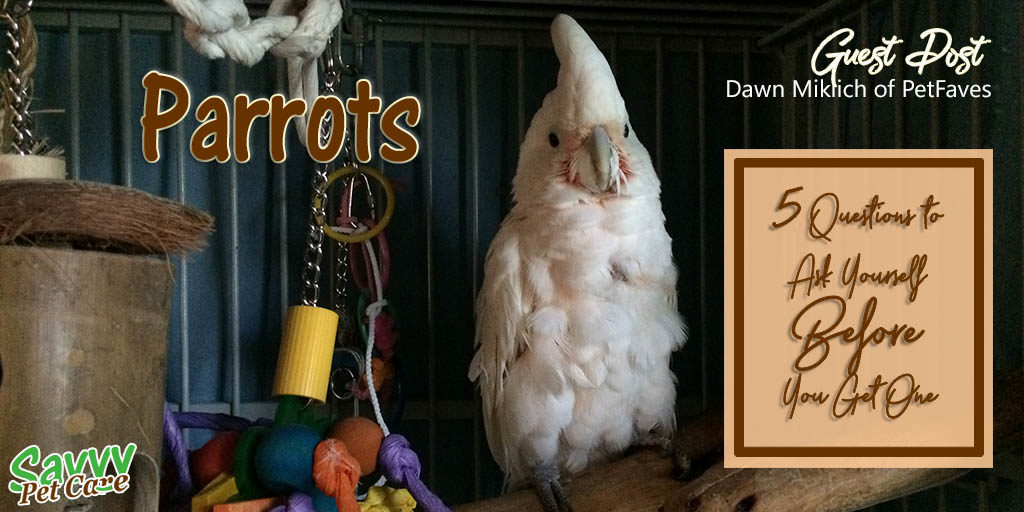
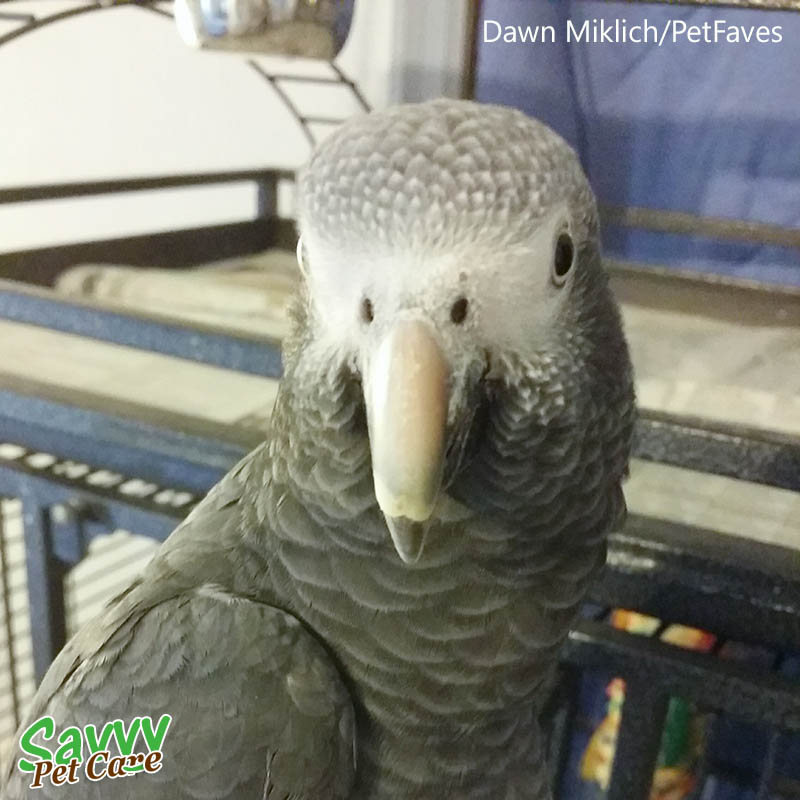
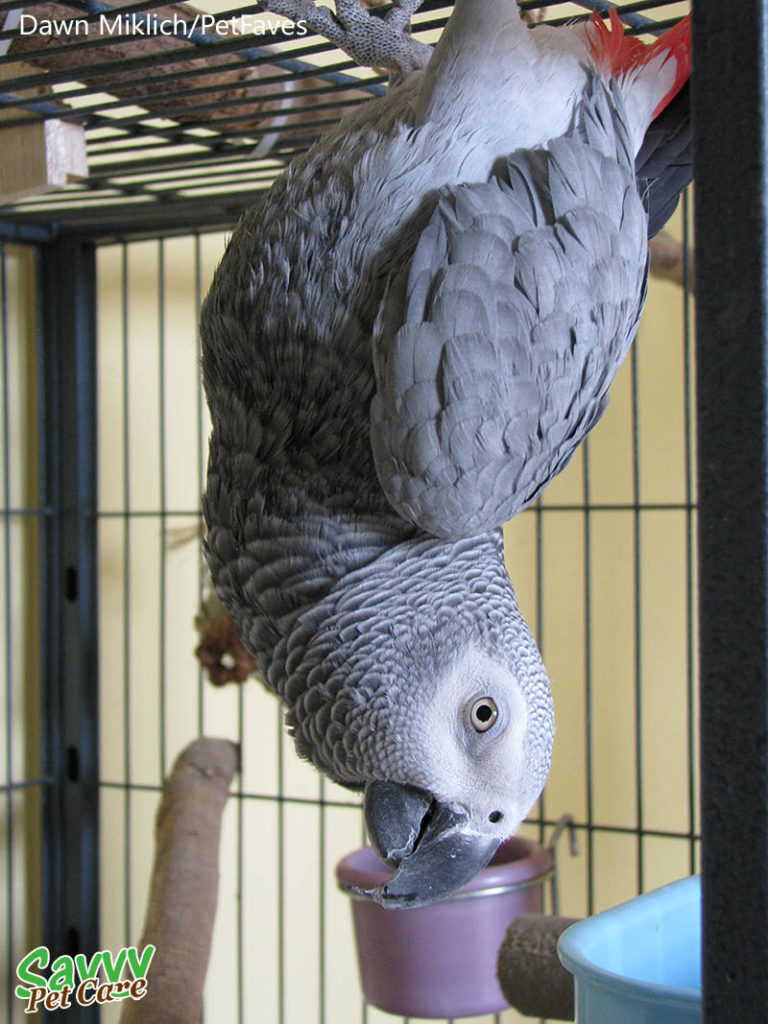
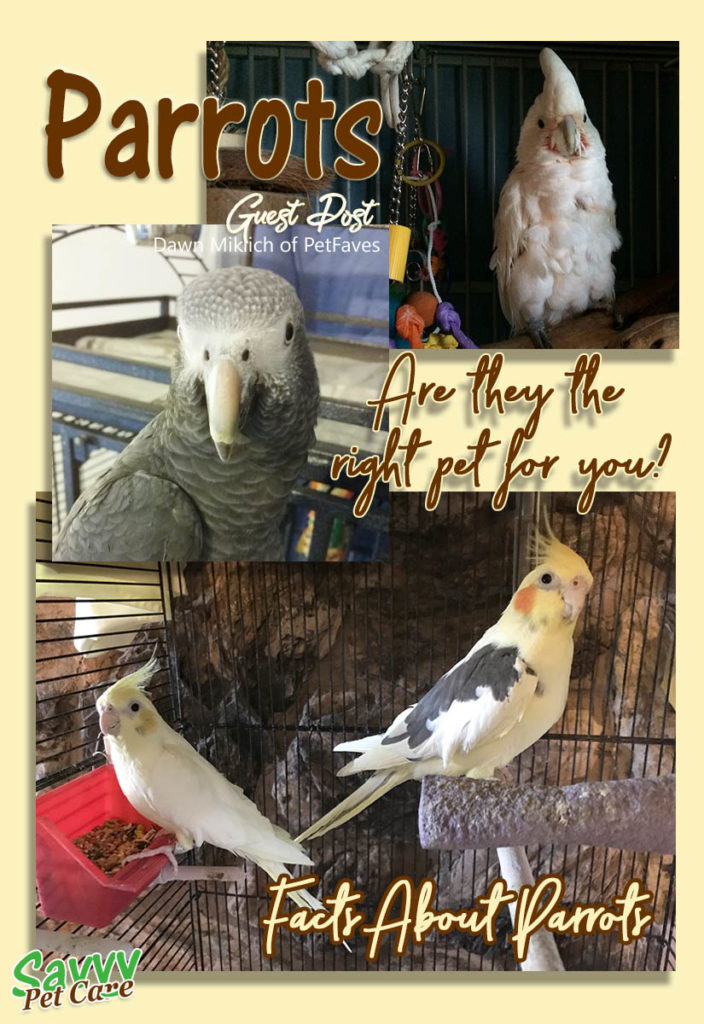
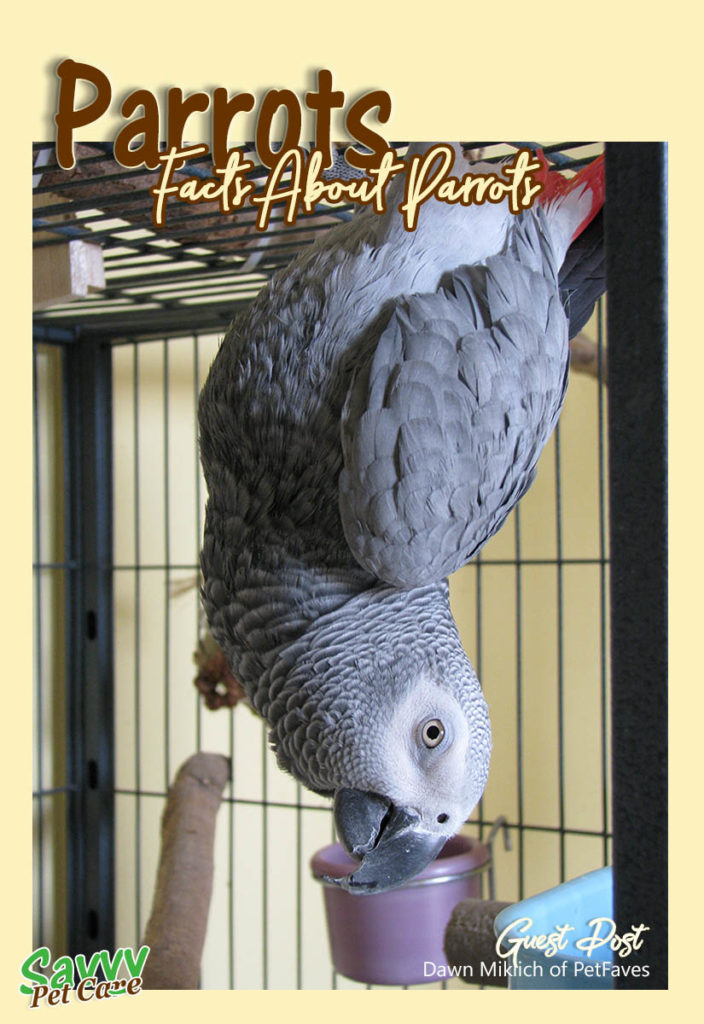

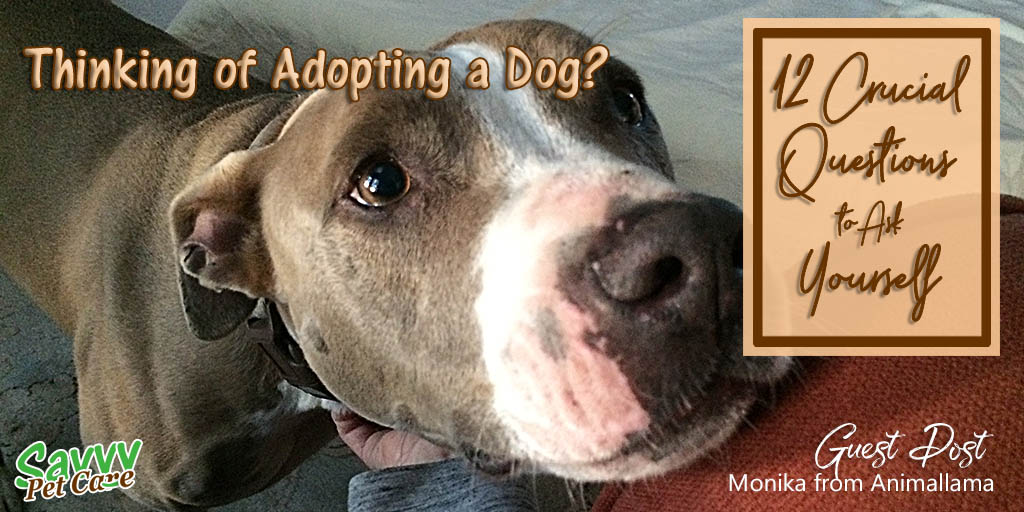

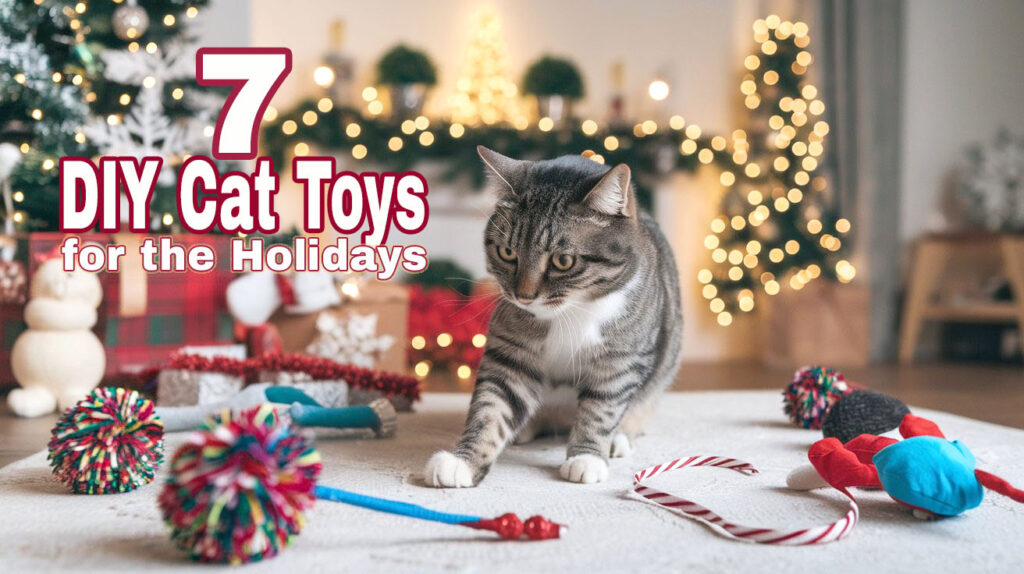
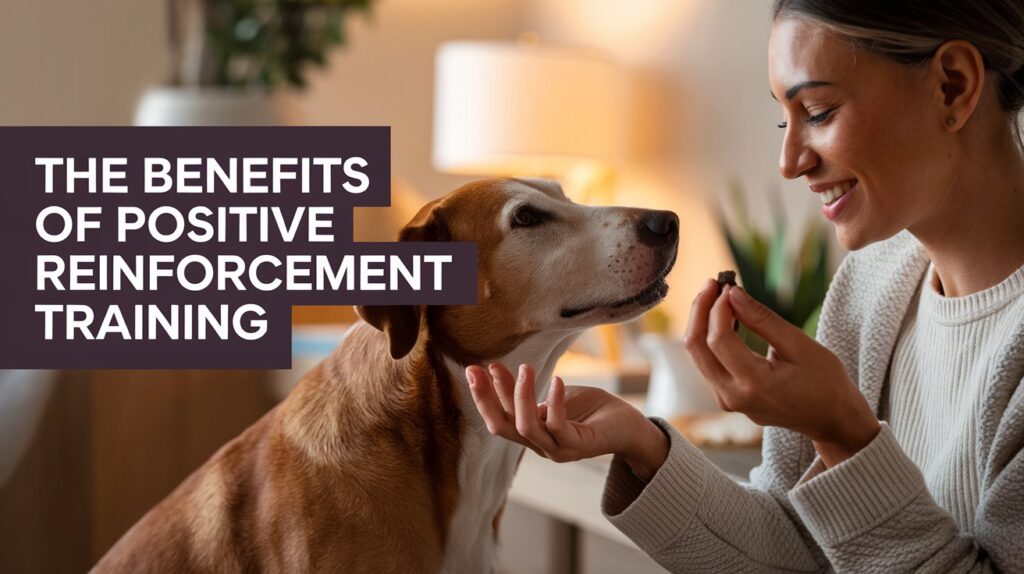

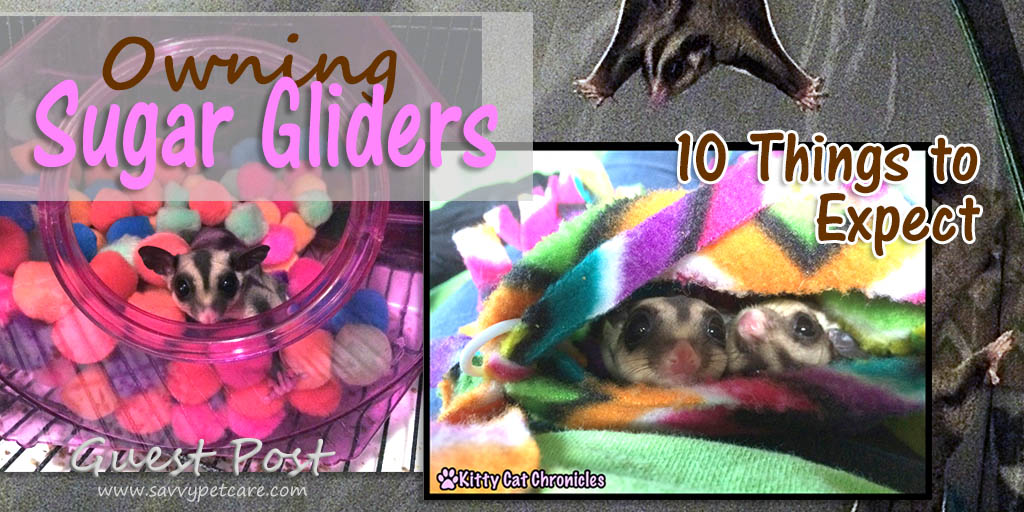

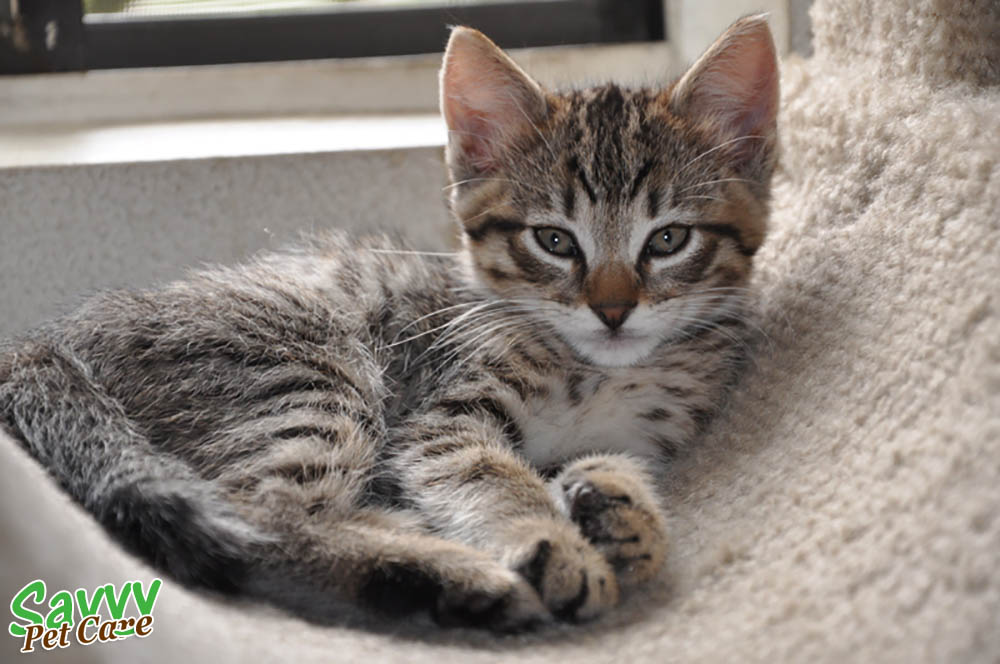
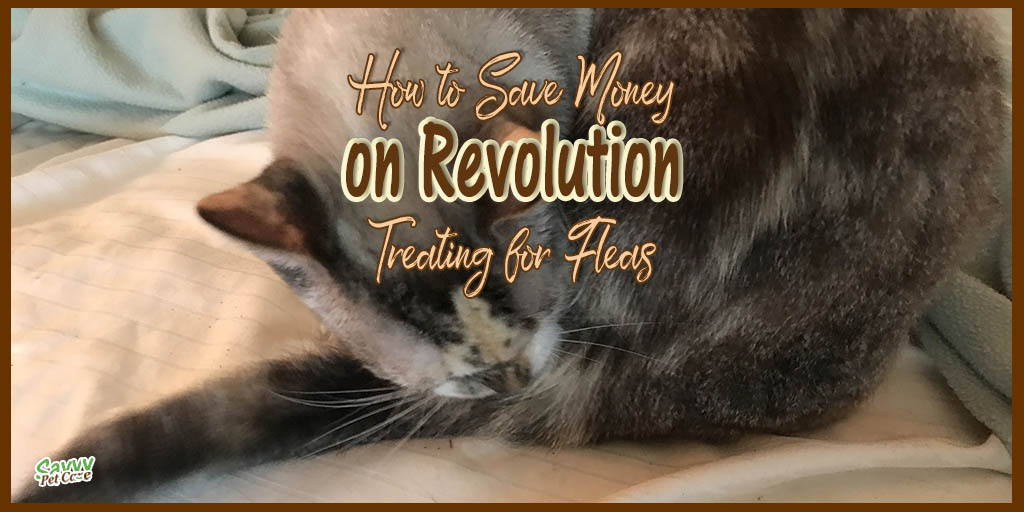

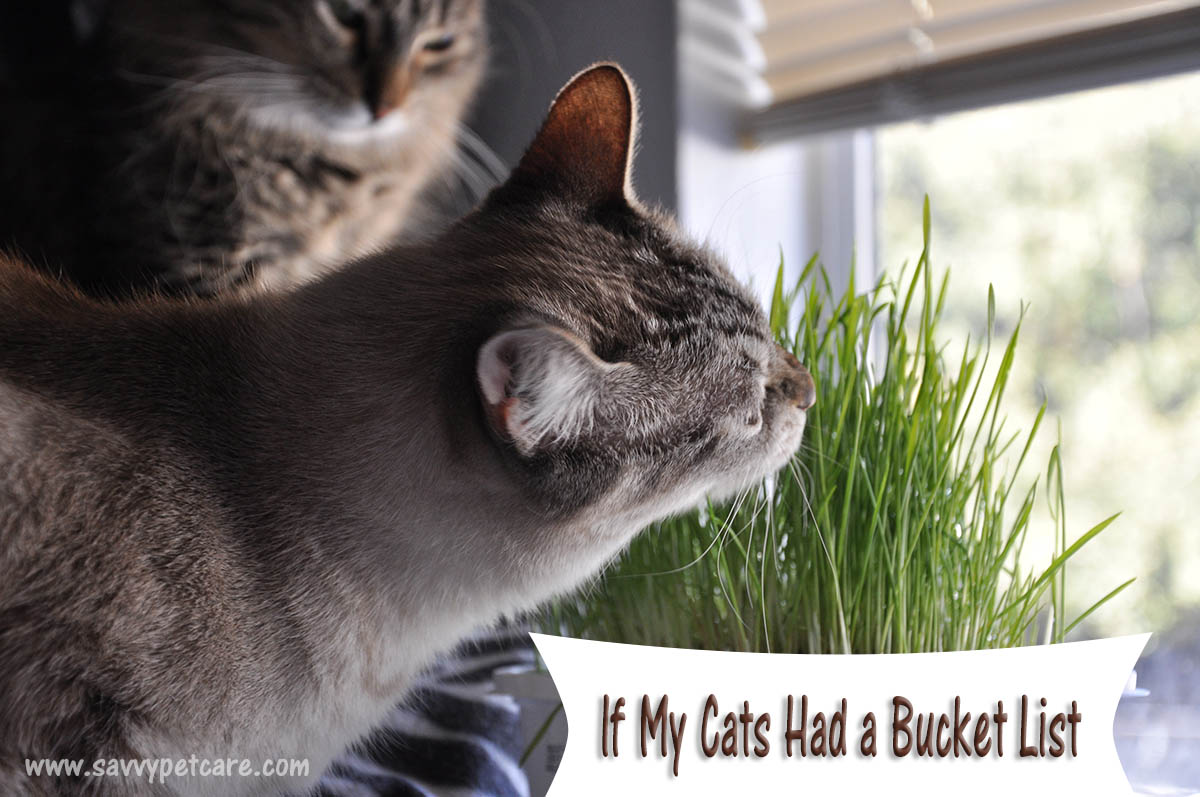

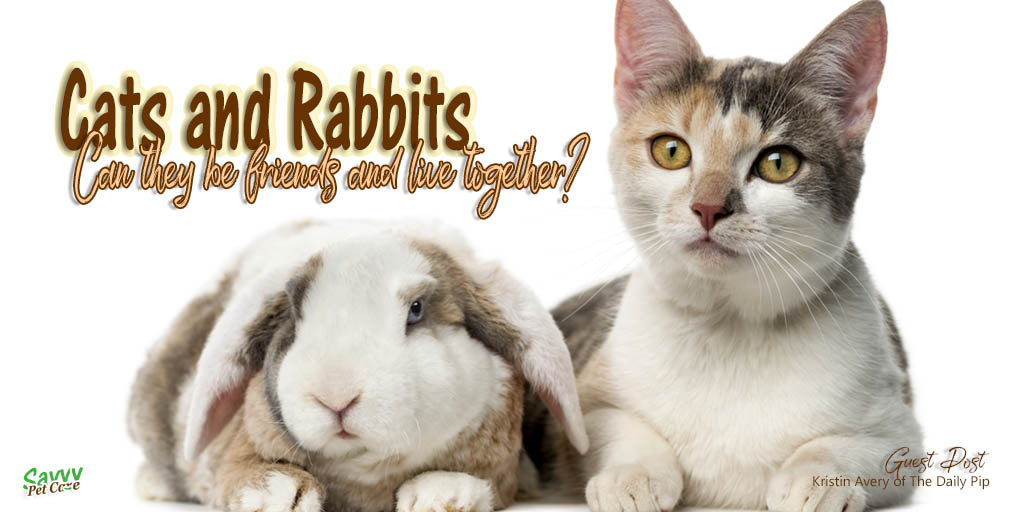
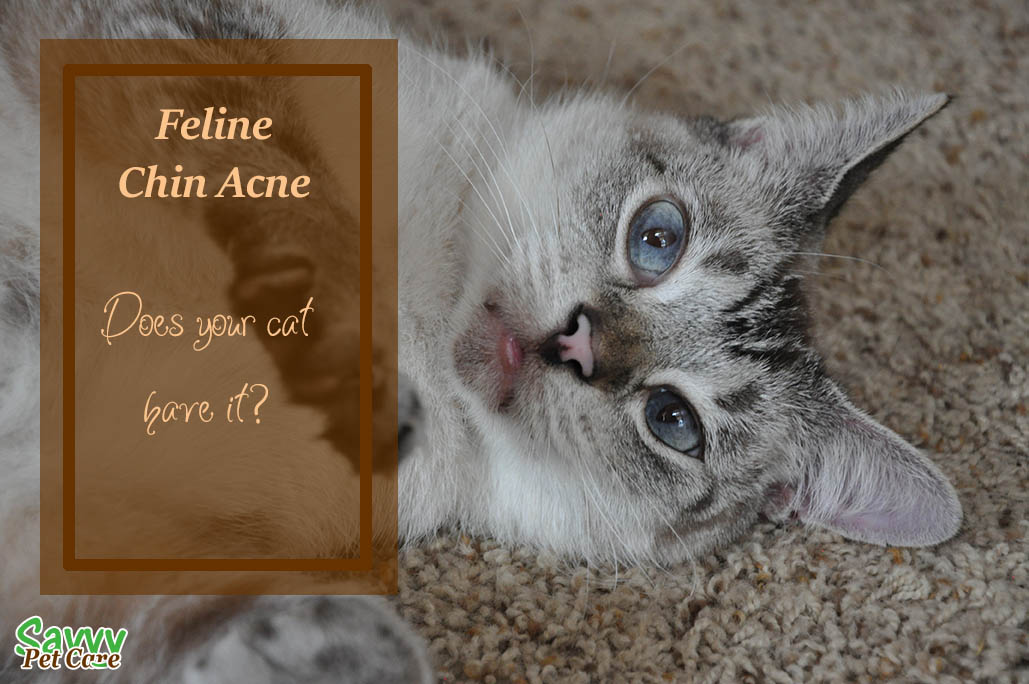



A bit like rabbits then both Naughty,destructive but funny too and both need specialist care from vets.Rabbits just aren’t quite as noisy though when Speedy is in a grump he can thump all night long.One complicated pet is enough for me even though I love the idea of having a parrot,xx Rachel
True speedyrabbit! Bunnies and parrots have a lot of the same challenges. It’s good to know your limit!
Parrots can be naughty, too? Hmmm… MY peeps can handle naughty behaviour. After all, they have me. (Not to mention those fur-sibs of mine!) PURRS.
I don’t know Seville. Parrots take naughty to a whole new level!:)
Parrots are so beautiful! After visiting the Best Friends sanctuary in Utah and touring Parrot World, I found out how much care and attention they need. And how they really need to be with a good pet parent. And this article spells that out as well! Very good info for people to know before they get a parrot.
Thank you Rachel!
Best Friends is on my list of places to visit someday. So cool that you have been there and were able to learn about the care parrots need. Hopefully, my article helps people do the same before they get a bird.
I would LOVE to have birds but I am not sure I could take care of Parrotts. I would love to but because I love animals SO much I would not take on more than I can chew, especially since they can chew so much lol. I am not even worried about the mess, the noise – actually I think I could handle the sound of the African Greys because I have tinnitus already and the loud high pitch beeping is something I am used to. For me it would be the expense I think. I work from home so the feathers on me would not bother me, nor the messy house that I always have to clean. You should see what my cats do with a litter box! Again for me the expense. Around here we have ONE vet that specializes in birds and they are HIGH dollar. I do adore birds, however, so much. They are amazing!
It’s great that you’ve thought about what your limitations are. So many people just jump right into bird ownership only to find out they can’t afford them or can’t give them the time.
If you ever do decide a bird might be for your family, you might want to check out some of the smaller species. Budgies(parakeets) are fun little birds that have a big bird personality. Being smaller, they aren’t as expensive as the larger species.
I have two blind spots with pets. One is horses, the other is birds, so this is such a great and informative article.
I remember reading that parrots have a very low boredom threshold and need constant stimulation! I thought cats were bad enough but no! I saw two macaws in a British pub once. I thought the constant activity must be perfect for them they were always friendly and constantly stimulated 🙂
Thanks, Dash Kitten Crew!
Having both parrots and cats, the parrots definitely win hands down in needing to be kept busy. It’s almost like having a few 2-year-old children to care for! 🙂
When I married my husband, I inherited his daughters’ budgee birds Blue and Gold. They were social birds and loved it when we moved their cage onto the patio in warm weather. They were also strongly bonded. When one died, the other one passed just a few weeks later. I’m convinced that Blue was mourning the loss of Gold.
Budgies are fun birds.
They definitely feel grief just like we do. I lost my African Grey, Casey, a year ago and my other Grey, Kijivu, showed signs of grief including plucking his feathers out. While I was upset about Casey, I felt so bad for Kijivu as I’m sure his loss was so much greater than mine.
I have absolutely no experience with parrots so this was so interesting. I had no idea parrots could be moody or hormonal!
I visited Best Friends a few summers ago and had a tour of their parrot house. I remember our guide telling us now sensitive they were – and truly broken hearted when they were as a result of being abandoned by their human families.
I would love to go volunteer at the Parrot House at Best Friends!
Losing their home is definitely stressful for them. Luckily so many come through it ready to be loved in their forever home.
I have always wanted a parrot, but it never worked out. Now that I’m an adult, the life span of the parrot is worrisome because it will most likely outlive me. I saw a show on television about a man who rescues parrots – he’s their lifesaver.
Life span is something I worry about, but I try to keep in mind that there are many older birds that need homes and I should have a plan in place because you never know.
I used to have some small parrots (Senegals and Ringnecks) and they brought a lot of joy as well as the drawbacks you mentioned.
There was a time when I dreamed of having a cockatoo, but I realized that the noise level is too much for us. I’d love to get another cockatiel or lovebird some day.
My Eco is a Senegal! Love him so much, but he is your typical Sennie and I have to watch out when he is in a mood!
I was considering a cockatoo for my first bigger parrot, but after my research felt it would be too much bird for me. They are so beautiful though.